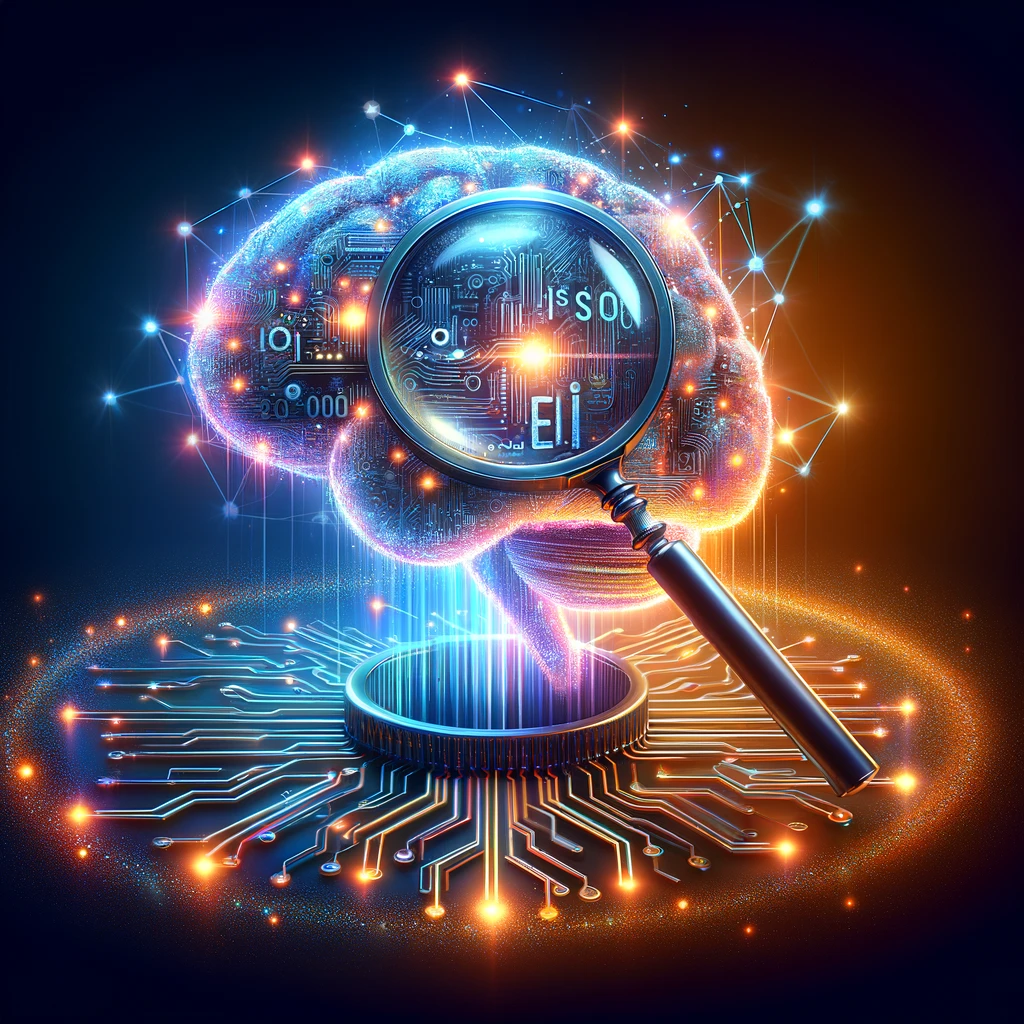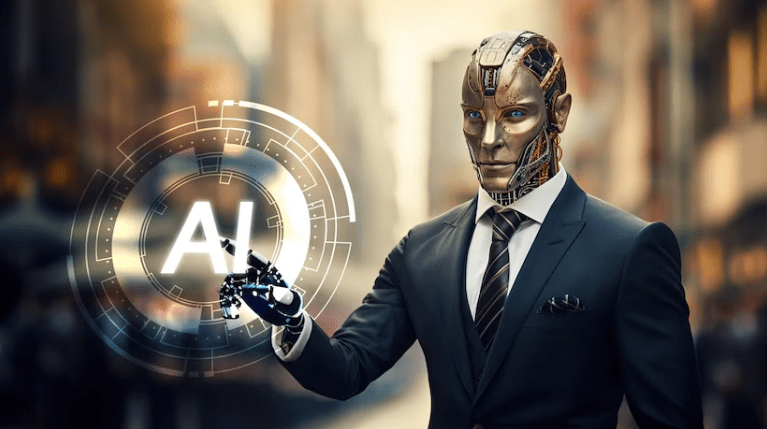
The discussion surrounding AI generated content and its impact on SEO is gaining momentum. “Is AI generated content good for SEO?” is a question that’s increasingly relevant as businesses explore automated solutions for content creation.
AI technology has advanced to a point where it can produce written material that mimics human-generated content convincingly. This phenomenon has led to the rise of what’s often referred to as “auto-generated content.” From product descriptions to blog posts and even news articles, AI algorithms are capable of generating text across various domains.
However, the quality and effectiveness of AI-generated content in terms of SEO remain subjects of debate within the digital marketing community.
What is Ai-Generated Content?
AI-generated content has seen significant advancements in recent years, with AI algorithms becoming increasingly sophisticated in their ability to understand context, tone, and style. These advancements have led to the widespread adoption of AI-generated content by businesses seeking to streamline their content creation processes and scale their digital presence.
While AI-generated content offers the potential for efficiency and cost savings, it also raises questions about originality, creativity, and ethical considerations. As businesses navigate the complexities of AI-generated content, understanding its implications for SEO becomes paramount in ensuring effective digital marketing strategies.
- AI-generated content is created by algorithms without human intervention.
- It mimics human-generated content through natural language processing and machine learning.
- It encompasses various forms of text, including articles, product descriptions, and blog posts.
SEO and AI-Generated Content
In search engine optimization (SEO), the intersection with AI-generated content presents both opportunities and challenges. On one hand, AI-generated content can potentially bolster SEO efforts by providing a consistent stream of relevant and optimized content.
With algorithms capable of analyzing search trends and user behavior, AI-generated content can be tailored to target specific keywords and meet the needs of target audiences. This can contribute to improved search engine rankings and increased organic traffic.
However, the reliance on AI-generated content raises concerns about content quality and uniqueness, both of which are crucial factors in SEO. Search engines like Google prioritize high-quality, original content, and may penalize websites that rely too heavily on auto-generated text.
As such, striking the right balance between AI-generated content and human-created content is essential for maintaining a strong SEO presence.
| Pros | Cons |
| Consistent stream of relevant content | Potential concerns about content quality |
| Tailored to target specific keywords | Risk of duplicate or non-original content |
| Contribution to improved rankings | Possible penalties from search engines |
| Increased organic traffic | Difficulty in striking the right balance |
| Enhanced ability to meet audience needs | Dependency on AI algorithms for content creation |
The SEO Impact of AI-Written Content
AI technology offers the promise of streamlining content creation processes, optimizing for keywords, and enhancing user engagement—all of which are vital for SEO success. However, concerns linger regarding the quality, originality, and ethical implications of AI-generated text, raising questions about its long-term viability in the SEO landscape.
SEO Benefits
Efficiency: AI-written content streamlines the content creation process, enabling businesses to produce a high volume of material quickly.
Keyword Optimization: AI algorithms can analyze search trends and optimize content for specific keywords, enhancing search engine visibility.
Consistency: AI ensures consistency in tone, style, and messaging across various content pieces, reinforcing brand identity.
Scalability: With AI, businesses can scale their content production efforts without exponentially increasing costs.
Data-Driven Insights: AI-powered analytics provide valuable insights into user behavior, informing content strategy for better SEO performance.
Competitive Advantage: Adopting AI-written content early can provide a competitive edge, especially in industries where content freshness and relevance are critical.
Drawbacks
Quality Concerns: AI-written content may lack the depth, nuance, and authenticity of human-generated content, potentially undermining user trust.
Originality Issues: Duplicate or non-original content generated by AI algorithms can harm SEO rankings and lead to penalties from search engines.
Ethical Dilemmas: AI’s ability to mimic human writing raises ethical questions about transparency and disclosure, particularly in sensitive topics or industries.
Limited Creativity: AI may struggle to produce truly creative or innovative content, leading to a lack of differentiation in crowded market spaces.
Dependency Risk: Over-reliance on AI-written content may diminish human creativity and critical thinking skills, affecting long-term content strategy.
Algorithm Bias: AI algorithms may inadvertently perpetuate biases present in training data, resulting in skewed or discriminatory content that harms brand reputation.
How Will AI Affect SEO?
The impact of AI on SEO is a topic of significant interest and speculation within the digital marketing sphere. As AI technology continues to evolve, its influence on search engine optimization, particularly in the realm of computer-generated content, is becoming more pronounced.
AI has the potential to revolutionize how content is created, optimized, and ranked in search engine results pages (SERPs). By leveraging AI algorithms to generate content, businesses can streamline their content creation processes, target relevant keywords more effectively, and adapt to changing search engine algorithms.
However, concerns regarding the quality, originality, and ethical implications of AI-generated content persist, raising questions about its long-term implications for SEO strategies.
- AI’s evolution will reshape content creation and optimization for SEO.
- AI-generated content can streamline processes and improve keyword targeting.
- Quality and originality concerns may impact the effectiveness of AI in SEO.
- Ethical considerations surrounding AI-generated content are paramount.
- AI’s ability to adapt to changing search algorithms may provide a competitive advantage.
- The long-term implications of AI on SEO strategies remain uncertain.
How to Detect Ai-Generated Content?
Detecting AI-generated content is crucial for maintaining quality and authenticity in digital content. One effective tool for this task is CatchAi, a comprehensive platform designed to identify computer-generated text with precision and efficiency.
By leveraging advanced algorithms and machine learning techniques, CatchAi analyzes various linguistic and stylistic features to distinguish between human-written and AI-generated content. Its intuitive interface allows users to input text samples for analysis, providing detailed insights into the likelihood of automation.
CatchAi goes beyond simple keyword analysis, examining syntax, semantics, and contextual clues to uncover signs of artificial authorship. With its user-friendly interface and robust detection capabilities, This tool empowers content creators, marketers, and businesses to ensure the integrity and credibility of their online content.
CatchAi Features:
- Advanced algorithms and machine learning techniques for precise content analysis.
- Examination of linguistic and stylistic features to differentiate between human and AI-generated text.
- Intuitive interface for easy input of text samples and access to detailed analysis reports.
- Comprehensive evaluation of syntax, semantics, and contextual clues to detect signs of automation.
- Empowerment of content creators, marketers, and businesses to uphold the integrity of their online content.
- Robust detection capabilities to ensure the credibility and authenticity of digital content.
CatchAi serves as a valuable ally in the ongoing battle against AI-generated content, empowering users to uphold the principles of authenticity, integrity, and quality in their digital content strategies.
With its sophisticated analysis capabilities, user-friendly interface, and commitment to ongoing improvement, CatchAi stands as a trusted solution for detecting and mitigating the influence of automated content generation in the online realm.
Can Google Detect Ai-Generated Content?
Google has not explicitly disclosed the specifics of its algorithms for identifying AI-generated text, but it’s widely acknowledged that the search engine giant employs a variety of sophisticated techniques to evaluate the quality and authenticity of online content.
Google’s algorithms are designed to assess numerous factors, including grammar, syntax, semantics, and overall coherence, to determine the legitimacy of a piece of content.
Additionally, Google continuously updates its algorithms to adapt to emerging trends and techniques used in content creation, including those related to AI-generated text.
While Google’s exact methods for detecting AI-generated content remain undisclosed, there are indications that the search engine may employ machine learning algorithms and natural language processing techniques to identify patterns consistent with automated content generation.
Google also relies on user feedback, manual reviews, and quality raters to assess the relevance and usefulness of content in search results. This multifaceted approach allows Google to maintain the integrity of its search results and prioritize high-quality, authoritative content while minimizing the impact of AI-generated text that may lack originality or value.
Closing Note
The integration of AI-generated content into digital marketing strategies presents both opportunities and challenges for businesses seeking to enhance their online presence. While AI technology offers the promise of efficiency, scalability, and enhanced SEO performance, concerns surrounding content quality, originality, and ethical considerations persist. As AI continues to evolve, striking the right balance between automation and human creativity becomes paramount for maintaining a competitive edge in the digital landscape.
By leveraging AI tools responsibly, content creators and marketers can harness the power of technology to produce compelling, relevant content that resonates with their target audience while adhering to the principles of authenticity and integrity.





